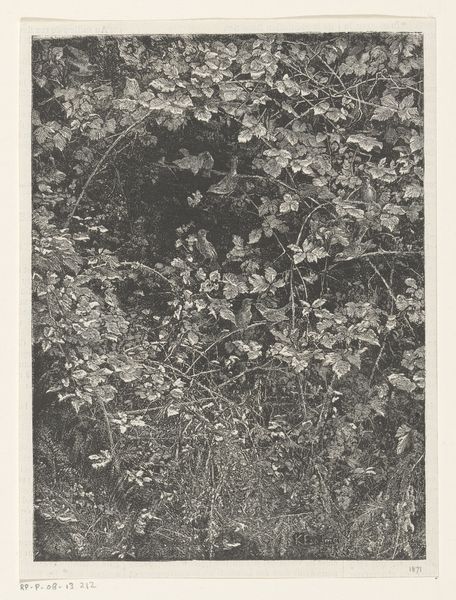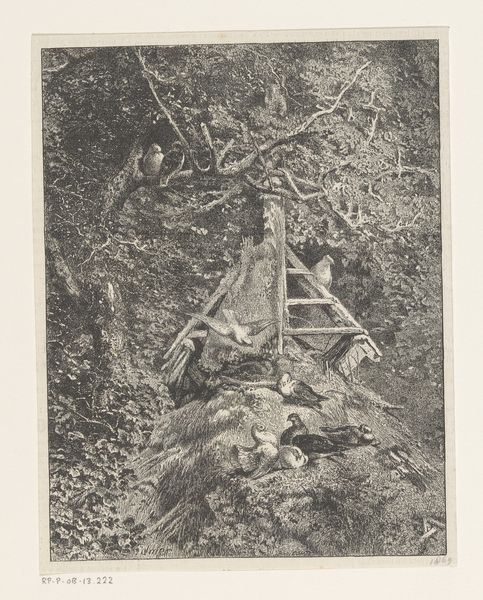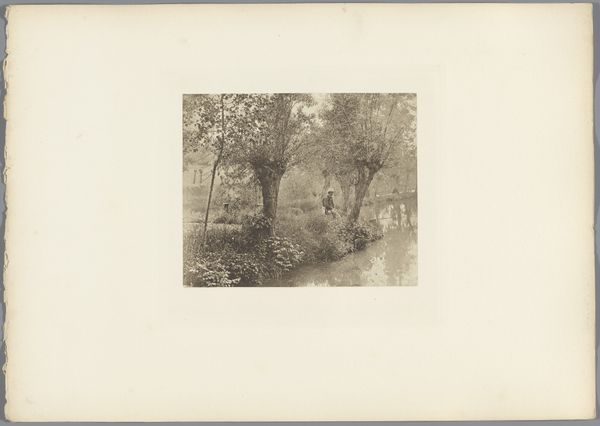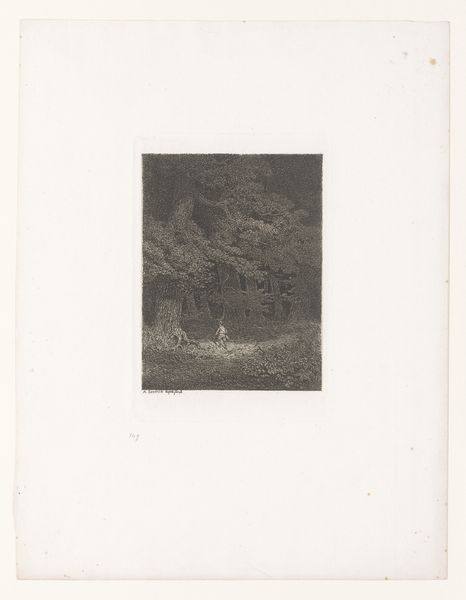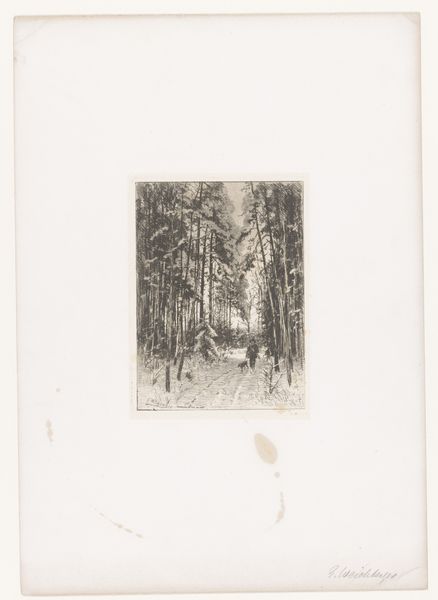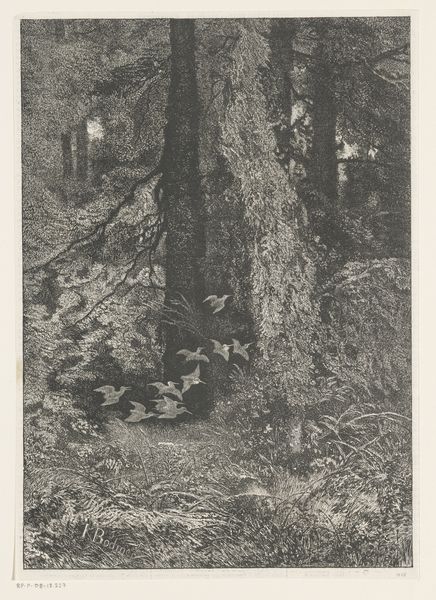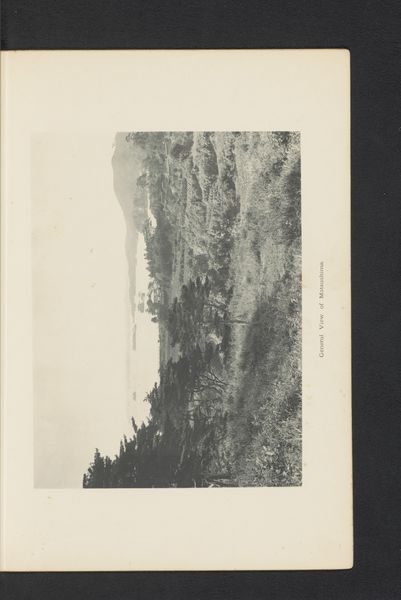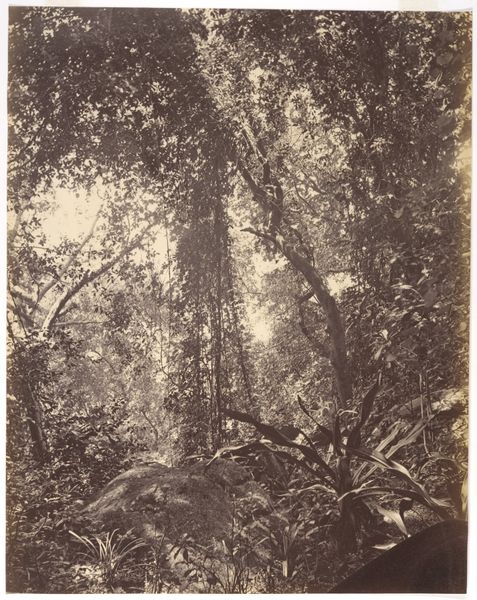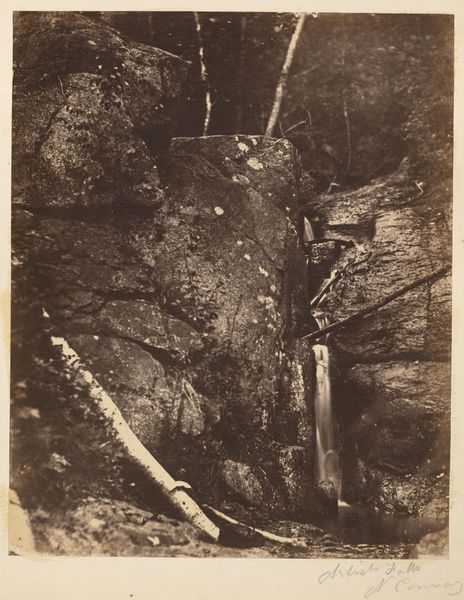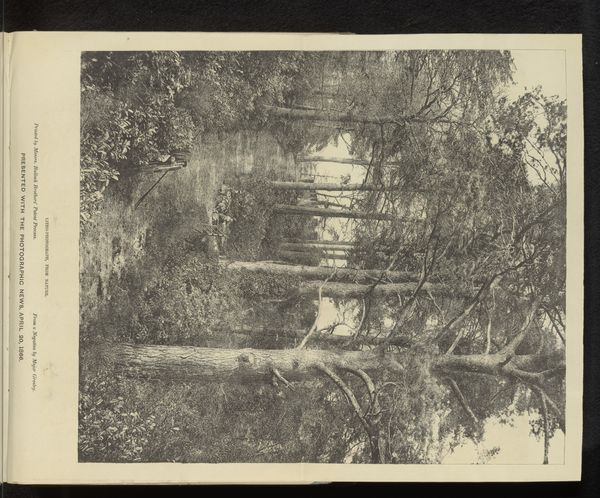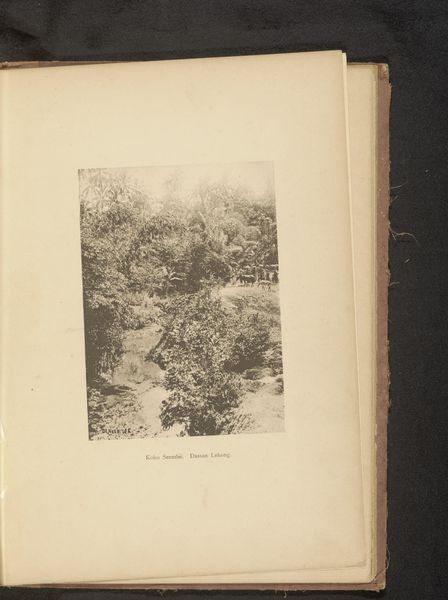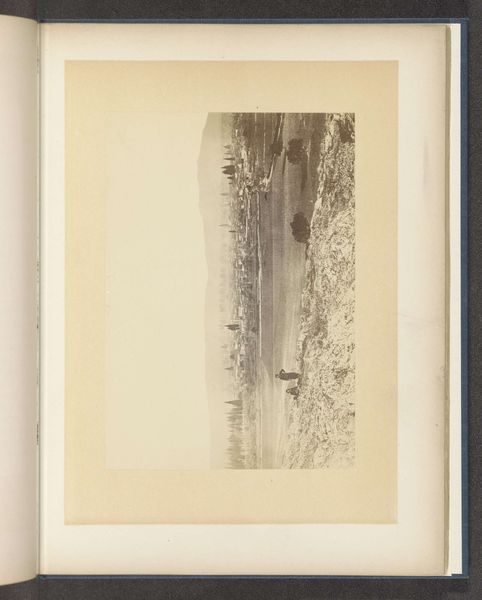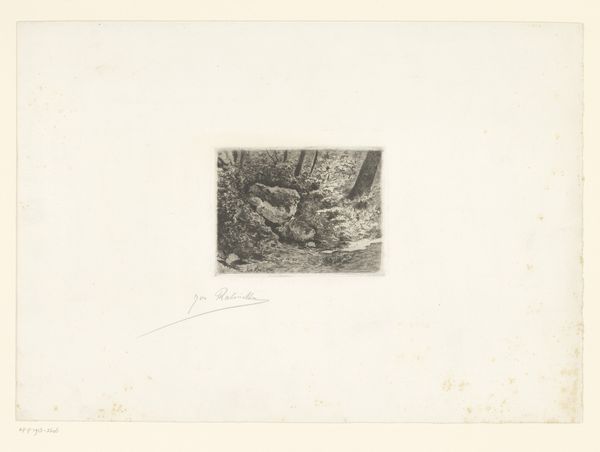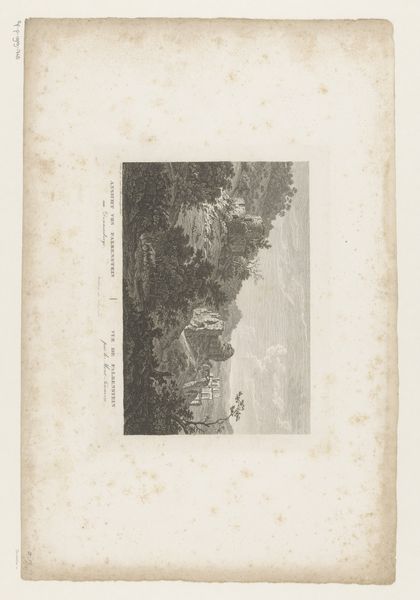
#
pencil drawn
#
rippled sketch texture
#
light pencil work
#
pencil sketch
#
old engraving style
#
pencil drawing
#
embossed
#
pencil work
#
tonal art
#
repetition of white colour
Dimensions: height 172 mm, width 119 mm
Copyright: Rijks Museum: Open Domain
Editor: This is "Fox in the Thicket" by Karl Bodmer, from 1868. It looks like a pencil drawing. It's quite detailed, and I'm immediately struck by how hidden the fox is within the dense foliage. What do you see in this piece? Curator: I see more than just a fox concealed in a thicket. This piece, created during a period of intense social and political change across Europe, seems to resonate with themes of marginalization and the struggle for visibility. Editor: Marginalization? Curator: Absolutely. Consider the fox. It is traditionally seen as a figure of cunning and trickery, often existing on the periphery of human society, isn't it? Now place that within the context of the late 19th century. We’re talking about rapid urbanization, industrialization, and the displacement of rural populations. Doesn’t the fox, half-hidden and trying to navigate this thicket, echo the plight of marginalized communities striving to survive within increasingly complex social structures? Editor: That's an interesting point. I hadn't considered the social context of the piece so explicitly. So, the thicket itself could be seen as a metaphor? Curator: Precisely. The thicket becomes a representation of societal barriers, the dense and often impenetrable systems that keep certain groups hidden, their voices unheard. Bodmer’s choice of such detailed linework adds to the sense of overwhelming complexity. Where does the individual end and the system begin? Editor: I'm starting to see the drawing in a completely new light. I originally just saw a fox hiding. Curator: It's about moving beyond the surface. We must contextualize and examine the intersectional layers of meaning. Editor: I’ll definitely be more aware of the historical context from now on. Thanks for broadening my perspective. Curator: My pleasure. Let's always ask: who is being seen and who is being obscured, and what structures create that reality?
Comments
No comments
Be the first to comment and join the conversation on the ultimate creative platform.
